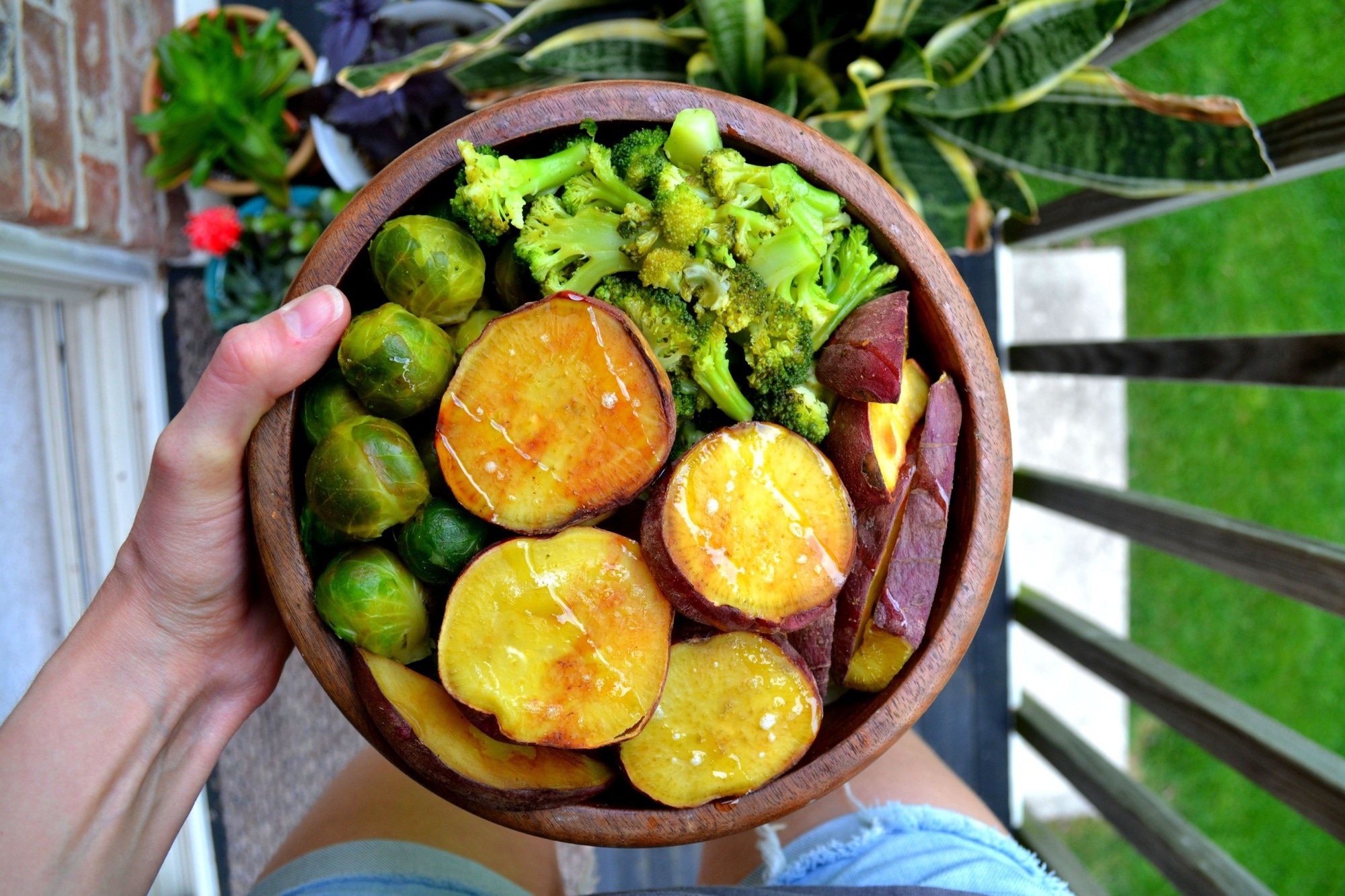Articles
Eat as your ancestors did with a plan that promotes grass fed meats and seafood, fresh fruits and vegetables, eggs and healthy fats. This diet excludes dairy, processed foods, salt and refined sugars, as well as legumes (including peanuts), whole grains, and potatoes.
In a recent article published in the journal Movement Disorders, researchers performed a prospective cohort study among 126,283 participants from the United Kingdom (UK) Biobank to examine the association of three plant-based diets with Parkinson’s disease (PD) incidence.
 Study: Plant-Based Dietary Patterns and Parkinson’s Disease: A Prospective Analysis of the UK Biobank. Image Credit: kathryn.reilly / Shutterstock
Study: Plant-Based Dietary Patterns and Parkinson’s Disease: A Prospective Analysis of the UK Biobank. Image Credit: kathryn.reilly / Shutterstock
Background
With the increase in global human population and life expectancy, the number of aged people is increasing. Accordingly, the prevalence of neurological disorders like PD has surged among those over 60 and 80 years by 1% and 3%, respectively.
PD causes both motor, e.g., postural instability, and nonmotor impairment symptoms, e.g., gastrointestinal dysfunction. So far, there is no treatment for PD; thus, strategies for primary prevention and treatment for PD are needed.
Thus, identifying and targeting modifiable PD risk factors, such as diet, might be the new avenue for PD prevention at an early stage. Population-based studies exploring the neuroprotective activity of compounds like vitamins C, A, E, and beta-carotene have fetched inconsistent results. Studies have more consistently suggested that caffeine intake might slow down PD progression.
More recently, plant-based diets, such as Mediterranean, vegan, and vegetarian diets, have garnered researchers’ attention. The EAT-Lancet Commission’s report recommended plant-based diets to improve human and planetary health.
The potential synergistic effects of different components in a plant-based diet, e.g., fiber, vitamins, and bioactive compounds, are favorable. They could reduce oxidative stress, cognitive impairment, and inflammation and exert neuroprotective effects; thus, these diets could help prevent the onset or progression of chronic diseases. Even though preliminary evidence shows high intakes of plant-based diets might reduce PD risk, overall data evidence of the protective effect(s) of diet on PD is limited.
About the study
In the present study, researchers recruited the UK Biobank participants from their 22 assessment centers in Scotland, Wales, and England. During their baseline visit, these people provided sociodemographic, health, and lifestyle data through a questionnaire, and trained personnel collected their physical measurements and biological samples.
Next, the team used the Oxford WebQ dietary questionnaire to assess their diet-related data, which described their frequency of consumption of ~200 foods and 30 beverages for the past 24 hours. Further, they calculated a plant-based diet index (PDI), including the unhealthful and healthful plant-based diet indices (uPDI and hPDI) based on culinary and nutritional similarities of 17 food groups assessed in this study.
The team further categorized these food groups into healthy, unhealthy plant foods, and animal foods.
They added servings of each food of 17 food groups; later, they calculated the average intakes of all food items preceding PD diagnosis or till the study follow-up lasted to get a score for each participant. The researchers summed scores to calculate PDI, hPDI, and uPDI, which ranged between 17 and 85. The additional score based on only healthy plant foods (ohPDI) consumption ranged between six and 30. The higher PDI, hPDI, and uPDI scores reflected a diet with more plant-based but lower animal-based foods.
The team categorized baseline characteristics of the participants by quartiles of plant-based diet scores, which distributed women and men equitably across the quartiles. Further, they used Pearson χ2 or ANOVA to compare the categorical or quantitative variables, respectively. Finally, the team used Cox proportional hazard regression models to estimate hazard ratios (HRs) for PD risk across quartiles of plant-based diet scores.
Results and conclusions
Nearly 56% of UK Biobank participants were female, with an average age of 56.1 years. During the study follow-up lasting 11.8 years, 577 cases of PD occurred. In the multivariable model, the HR for the highest vs. the lowest quartile of hPDI was 0.78, which is why participants in the highest hPDI quartile had a 22% lower risk of PD; however, a higher uPDI showed a correlation to a 38% greater risk of PD. The authors also noted a linear, albeit weaker, inverse association for overall PDI.
The authors noted no association between dairy intake and PD in the current study. However, higher intakes of vegetables, nuts, and tea lowered PD risk, especially when consumed in three, 0.5, and five portions/day.
In sensitivity analyses, differential associations between hPDI and PD were significant only for those with higher education (HR 0.84), smokers (HR 0.82), and lower PD polygenic risk score (PRS) (HR 0.72). It suggested that dietary intervention might exclusively benefit those without genetic risks.
To conclude, the study data evidenced that plant-based foods could potentially reduce PD risk and the risk of several other chronic diseases besides benefiting planetary health.
- Tresserra-Rimbau, A., Thompson, A. S., Bondonno, N., Jennings, A., Kühn, T., & Cassidy, A. Plant-Based Dietary Patterns and Parkinson’s Disease: A Prospective Analysis of the UK Biobank. Movement Disorders. https://doi.org/10.1002/mds.29580, https://movementdisorders.onlinelibrary.wiley.com/doi/10.1002/mds.29580
Source: news-medical.net






















Add comment